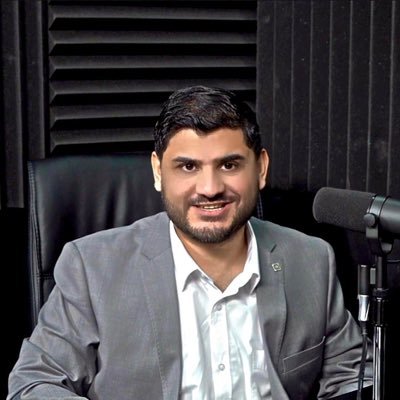🚨BREAKING: US WARSHIPS HEADING TO IRAN & ISRAEL RESTART GAZA GENOCIDE
The Spaces discussion centered around recent geopolitical escalations, specifically focusing on Israel's resumption of bombing in Gaza and the potential for a widened conflict involving Iran. Speakers shared varying perspectives, voicing criticism of both US support for Israeli actions and the Trump administration's foreign policies. The dialogue highlighted concerns about increasing tensions in the Middle East and the implications for global stability. Accusations were levied against media and political entities for perpetuating conflicts and ignoring humanitarian crises, with participants questioning the underlying motives and long-term strategic plans behind current events.
Breaking News and Key Updates
Israeli-Palestinian Conflict
- Suleman (Speaker 1) reports that Israel has resumed its military actions against Gaza, effectively ending the previous ceasefire. Heavy bombings are reported in Gaza City, targeting infrastructure and civilians, suggesting a continuation of what is described by Suleman as genocide under the Trump administration's approval.
- Kalisi comments on the strategic and historical perspective, criticizing past and current U.S. administrations' compliance with Israeli military actions and the impact of these actions on Palestinian territories.
- Speaker 5 provides historical insight into the ceasefire negotiations mediated by Trump, expressing skepticism about Israel's intentions and claiming that Israel systematically undermines such ceasefires.
- Ryan Dawson and Speaker 5 discuss Israel's strategic motivations and the humanitarian implications of their actions, emphasizing the ongoing humanitarian crisis and the historical pattern of Israel breaking ceasefires.
U.S.-Iran Tensions
- Suleman and others report that three U.S. carriers are en route to Iran amidst unconfirmed reports of Iranian ships being targeted, noting the potential for significant military escalation.
- There are multiple mentions of a U.S. drone confrontation near Tehran by Iranian forces, highlighting the heightened military tensions.
Domestic and Global Reactions
- Multiple speakers express profound concerns about the geopolitical strategies of the Trump administration, the involvement of American military forces, and the broader implications for U.S. international relations.
- Critics like Speaker 4 and Amanda highlight skepticism and criticism towards the Trump administration's claims of being anti-war, especially in light of ongoing military engagements and strategic maneuvers.
- Suleman mentions increased censorship and the critical need for spreading awareness about these international conflicts, encouraging listeners to reshare content and updates.
Humanitarian Impact
- Reports from multiple speakers state that ongoing bombings in Gaza have resulted in numerous civilian casualties, including children, and a severe humanitarian crisis exacerbated during the holy month of Ramadan.
- Hadeel, a Palestinian, provides personal and historical context, emphasizing the long-standing impacts of Israeli actions on Palestinian communities, and expressing a general lack of expectation for assistance from any U.S. administration.
Conclusion
- The discussion encapsulates concerns about the Trump administration's foreign policy direction, the implications of ongoing military operations, and the myriad of voices urging for a reevaluation of U.S. foreign alliances and commitments, particularly concerning Israeli-Palestinian relations and U.S.-Iran tensions. The conversation reflects a diverse set of opinions on international diplomacy, regional stability, military strategy, and humanitarian considerations in these complex geopolitical arenas. Many speakers advocate for increased public awareness and international accountability to address the ongoing conflicts and potential crises effectively.
